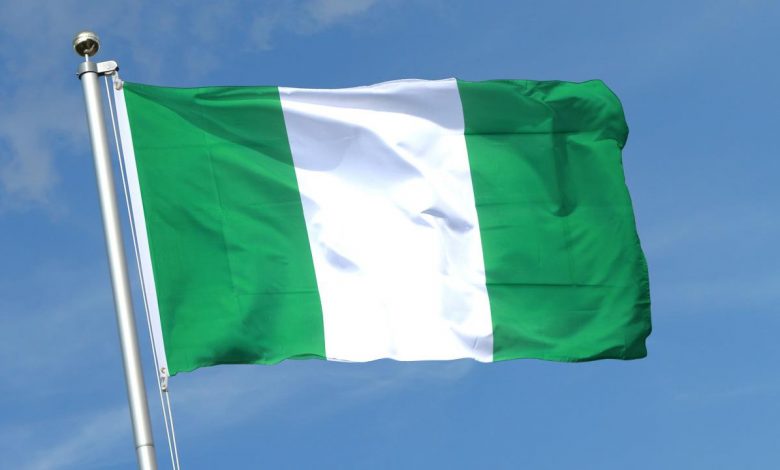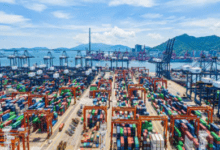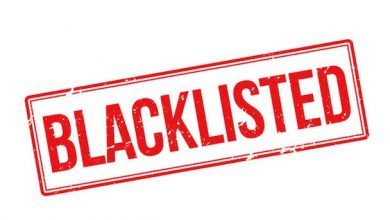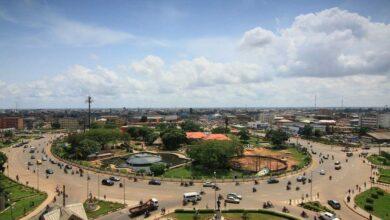
10 CHALLENGES OF NATIONALISM IN NIGERIA
10 CHALLENGES OF NATIONALISM IN NIGERIA- Nationalism is an ideal that promotes unity, preserves culture and inspires citizens to work together for a common good, which leads to the building of a stronger and more resilient society. It helps in promoting a sense of loyalty and commitment to one’s nation that strengthens national security.InformationGuideNigeria
It is important to understand that extreme forms of nationalism do exist and are expressed in a widely different manner from what nationalism stands for. CHALLENGES OF NATIONALISM IN NIGERIA
👉 Relocate to Canada Today!
Live, Study and Work in Canada. No Payment is Required! Hurry Now click here to Apply >> Immigrate to CanadaHowever, strength, resilience, and economic and social progress can be hindered if there is a lack of nationalism. This could further increase internal conflicts and a deep sense of disconnect from a country’s values. All of which happens to be the case in Nigeria. In this article, we talk about the problems of Nigerian nationalism and some actions we can take to improve nationalism in Nigeria.
Read Also: The Role of ECOWAS in Conflict Management in Nigeria
What is Nationalism?
Nationalism is a political ideology that emphasises the identity, unity, and independence of a nation. Nigerian nationalism is a movement that seeks to promote the interests and unity of Nigeria as a nation.
Nigerian nationalism aims to foster unity and cohesion among the diverse ethnic and religious groups in Nigeria, promote national pride and identity, and work towards achieving economic and social development for all Nigerians.200 Romantic Love Message
There have been several prominent Nigerian nationalists, including Nnamdi Azikiwe, who played a leading role in the struggle for Nigeria’s independence from British colonial rule and Obafemi Awolowo, who was a key figure in Nigeria’s First and Second Republics. Other notable Nigerian nationalists include Tafawa Balewa, Anthony Enahoro, and Margaret Ekpo.
Read Also: The Role of Horticulture in Nigeria Economy
Major Challenges of Nationalism in Nigeria
Here are ten of the most significant challenges of nationalism in Nigeria:
-
Ethnic and Religious Conflicts:
With over 250 ethnic groups and over 50 languages, Nigeria is a culturally, ethnically and religiously diverse nation. This heterogeneity of not properly managed under nationalism and can sprout ethnic and religious conflicts with people seeking only to focus and align with their ethnicity and religion. This will result in diverse identities and reduce unity within the nation.20 Best Gas Cookers Pictures and their Prices in Nigeria
👉 Relocate to Canada Today!
Live, Study and Work in Canada. No Payment is Required! Hurry Now click here to Apply >> Immigrate to Canada-
The Marginalisation of Minorities:
Nationalism especially within heterogeneity can bring about the marginalisation of ethnic and religious minorities as the dominant group tries to assert its dominance over the rest of the population in all spheres of life. This can diminish and suppress minority cultures, languages, and traditions, which can contribute to feelings of resentment and division.
-
Political Instability:
Political instability is a major challenge that faces nationalism in Nigeria. The Nigerian political structure is deeply grounded in ethnic and regional loyalty, which means that the federal government’s life is very perilous. This situation provides a fertile ground for ethnic conflicts and thereby poses a challenge to political stability in the country especially as it becomes a tool for politicians to mobilize and brainwash people for political purposes. This can lead to political instability as different groups compete for power and resources.
-
Economic Disparities:
Economic disparities between ethnic and religious group further accentuates and deters nationalism. Even the early Nigerian patriots were largely focused on enriching the economic, social and educational achievements of those within their region. This can result in a lack of equal opportunities for all citizens and create resentment among those who feel that they are not getting a fair share of the country’s resources.
-
Conflict with Regional and International Interests:
Nigeria’s nationalism is constantly in friction when it comes to the nations dealing with International bodies as well as other countries. For instance, some regions or groups in Nigeria do not accept Nigeria’s participation in Climate conferences that seek to reduce the exploration and dependence on oil. These sort of conflicts further pulls people away from any form of nationalism as they feel the nation does not act in their interest.
Read Also: The Role Of Government In Agriculture In Nigeria
-
Historical and Political Legacies:
Nigeria has a complex history, with a legacy of colonialism, military rule, and ethnic and religious tensions. This history attaches blame to one group or at least a person from that group. Nationalism contends with these historical and political legacies and the leaders and people within these legacies to move the country forward in a positive direction.
-
Lack of National Identity:
Despite its cultural and ethnic diversity, Nigeria lacks a strong sense of national identity. The quest for a sense of belonging, politicization, and social dissatisfaction have threatened the unity of Nigeria and highlighted deficits in the social order that have made Nigeria appear as contested. This can be a challenge for nationalism, as it is difficult to promote unity and cohesion without a shared sense of national identity. Ultimately, the Nigerian state needs to manage effectively and imaginatively the co-existence of multiple ethnicities to build up a strong national identity.
-
Political Polarisation:
Nationalism can sometimes lead to political polarization, as different groups compete for influence and power. This can be seen in the emergence of ethnic consciousness and the deep anxieties and mutual fears produced by high ethnic or political polarization. Polarisation can lead to a breakdown of civil discourse and an increase in extremist views, which can have negative consequences for national stability and nationalism. For instance, the fight for the independence of the Biafra Nation is a result of polarization that manifested through anxiety and fear of the Nigerian Federation.NYSC Portal
-
Corruption
Corruption is a major challenge in Nigeria and can undermine the principles of nationalism as it can lead to inequality, ethnic grievances, and a decline in moral values and virtues. This can create an environment of distrust and frustration, which can undermine national unity and stability.
-
Education and Media:
The education system and media are important actors in shaping public opinion and reorienting the public towards the promotion of nationalism. However, these institutions are incentivized to promote and contrast cultures which can further undermine nationalism. This can contribute to division and mistrust, rather than unity and cohesion.
Read Also: The Role Of Judiciary In The Implementation Of Law In Nigeria
Ways we Can Improve Nationalism among Nigerians
Several activities can help improve nationalism among Nigerians, including:
-
Promoting National Unity:
Through national campaigns, community events, orientation exercises and educational programs that highlight the shared history and cultural heritage of Nigeria, the national unity of Nigeria can be promoted. This encourages citizens to focus on the nation’s shared values and common goals that can help foster a sense of national unity.105 Good Morning Love Messages
-
Encouraging Civic Engagement:
Citizens can be encouraged to become more participants in the political and social life of Nigeria which can help promote nationalism by fostering a sense of attachment and responsibility for the future of the nation. This can include activities like volunteering, tourism, and campaigns.JAMB Portal
-
Addressing Historical Injustices:
There is a great need to address historical injustices. This promotes reconciliation between different ethnic and religious groups that can help promote nationalism. This can be done through truth and reconciliation commissions, historical studies, and other initiatives aimed at promoting mutual understanding and respect.
-
Combating Corruption:
Corruption remains a threat to any form of nationalism. By promoting transparency and accountability in government and businesses, a sense of trust and confidence in the government and institutions is created which can help promote nationalism. This can be done through anti-corruption campaigns, legal and regulatory reforms, and public education and awareness initiatives.20 Best Shoe Organizers in Nigeria and their Prices
-
Investing in Education and Media:
Schools and the media are a means to influence and curate the opinions of Nigerians. By Investing in these institutions and promoting a shared sense of history, culture, and national identity, they can help promote nationalism. This can include initiatives such as curricular reforms, media literacy programs, and public campaigns to promote critical thinking and media literacy.
Read Also: The Role And Importance Of Arabic Language In Nigeria
Conclusion
Improving nationalism among Nigerians will require a comprehensive and sustained effort that addresses the underlying social, political, and economic challenges facing the country. By promoting national unity, and civic engagement, addressing historical injustices, combating corruption, and investing in education and media, Nigeria can build a strong and inclusive national identity that can serve as a foundation for a more stable and prosperous future.
Check JAMB Result
Check and Confirm: How much is Dollar to Naira








